Moglia, an award-winning football coach and transformational business executive, is just the fourth alumnus to be honored with the Fordham Founder’s Award as well as induction into Fordham’s Hall of Honor and its Athletics Hall of Fame. He is also a member of Fordham Prep’s Hall of Honor and Football Hall of Fame, and received an honorary doctorate from the University in 2009.
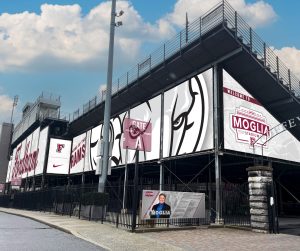
“Joe embodies the Fordham way,” said Tania Tetlow, Fordham’s president. “From his time as a student at the Prep, his undergrad days at Fordham University, and throughout his business and coaching career, Joe has been closely connected to Fordham and all this institution stands for. Joe has made us proud by clearly living the Fordham principles and mission. The stadium upgrades wouldn’t be possible without Joe’s continued generosity to the University. We are honored to name this stadium after him.”
Fordham will begin renovations to Moglia Stadium at Jack Coffey Field in order to make the stadium a top-tier venue for games and University events. The improved facility will feature a state-of-the-art video board, seating and press box renovations, upgraded lighting, and other improvements that help raise the profile of the University, boost recruitment, and enhance the game-day experience.
A Life of Leadership on the Field and in the Boardroom
A son of immigrants who grew up in the Dyckman Street area at the northern end of Manhattan, Moglia played football and baseball for four years at Fordham Prep before attending Fordham College at Rose Hill.
“I loved and always appreciated the education I got from Fordham,” Moglia said, citing its Jesuit approach as well as the many strong friendships he formed via the University and the Prep. “I’m proud to have been able to have a positive impact on the lives of others, and that all traces back to Fordham. A big part of whatever success I’ve achieved across two career paths is because of the education that I received there.”
When Joe began at Fordham, he was already a husband and father, and completely responsible for his education. He funded those expenses by driving a yellow taxi cab and a truck for the United States Postal Service. He also worked in his father’s fruit store, all the while carrying a full course load at Rose Hill. Due to his responsibilities, Moglia wasn’t able to be part of the Rams football team, but it was at Fordham that he began his football coaching career as an assistant at Fordham Prep.
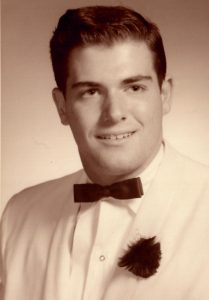
His coaching experience and the education he received at both the Prep and the University were formative for him, leading him to formulate, at age 21, his leadership philosophy – BAM – which defines the principles of a leader: standing on one’s own two feet, taking responsibility for oneself, treating others with dignity and respect, and accepting the consequences of one’s actions.
This philosophy, he said, “dealt with everything: The idea of spiritual soundness, really knowing who you are so you can make better decisions under stress; courage, the guts to do what you really believe is right; love, the recognition that leadership is not about you, it’s about the well-being of others; and the ability to adapt and adjust when things are not going particularly well.”
This philosophy guided him in his one-of-a-kind career as a winning head college football coach and successful Wall Street executive, he said. He coached high school and college football after graduating from Fordham and went to work on Wall Street in 1984, at Merrill Lynch, and eventually became CEO and board chairman of TD Ameritrade.
When he stepped down as CEO from TD Ameritrade in 2008, shareholders had enjoyed a 500% return. Joe stayed on as chairman of the TD Ameritrade board through 2020 when the firm was acquired by Charles Schwab. When the deal was announced, the combined company was worth $100 billion and had client assets of $7 trillion; when Moglia first arrived, these numbers were $700 million and $24 billion.
After stepping down as CEO of TD Ameritrade, Moglia decided to go back to football as a Division I head coach. In 2012, Moglia was named head football coach at Coastal Carolina University. In his last 11 years as a college football coach, Joe was part of eight championship teams and received the Eddie Robinson National Coach of the Year Award and the Lombardi Award. He was also inducted into 10 Halls of Fame, including the Vince Lombardi Hall of Fame, named for the 1937 Fordham alumnus. Moglia now serves as chair of athletics and is an advisor to Coastal Carolina University President Michael T. Benson.
Moglia Stadium
Moglia Stadium is part of a complex at the Bronx campus that includes Jack Coffey Field—the playing field for football and soccer—as well as Houlihan Park, the University’s baseball venue. The renovations will be a “game changer” because of the importance of the stadium as “a central theater of school spirit and school pride—internally on campus, externally in New York City and the tri-state area, and also for our alumni base,” said Fordham’s director of athletics, Ed Kull. The benefits of the stadium upgrades will extend not only to football and other sports but also to Fordham Prep, which uses University facilities as part of athletics collaborations, Kull said.
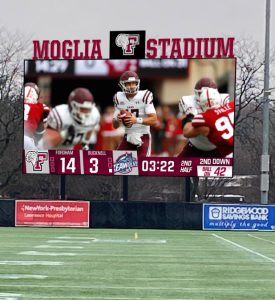
The stadium improvements also include new connections with a video control room in the Lombardi Center that, when completed, will be used to livestream all home athletics events and provide a training ground for WFUV student announcers and other students interested in broadcasting.
A new digital scoreboard and VIP viewing box are planned, along with other seating improvements.
The project will build on other recent enhancements like new offices for the football program, also supported by University benefactors. The stadium upgrades will help Fordham achieve parity with the stadiums at competitor schools and boost recruitment, “the lifeblood of the program,” aiding the program in its goal of once again reaching the NCAA Football Championship Subdivision (FCS) playoffs every year, said Joe Conlin, head football coach.
Kull said the football program tries—successfully—to recruit student-athletes who can be academic achievers at Fordham. Conlin also noted the team’s many community service efforts, such as visiting children in elementary and middle schools and working with Team IMPACT, a nonprofit that supports children living with serious illness or disability.
The revamped stadium will reflect “the class of institution that Fordham is,” Conlin said. “We should have a great game-day experience. We should have a great stadium. It’s a fantastic school and we have a fantastic fan base, and we have the best tailgate in FCS football, so the stadium should match that.”
]]>“You will be adults—or adult-ish,” Tetlow said to about 500 juniors and seniors on Nov. 29. “It is where you get the blessing and the challenge of free will, and you get to decide for yourself who you want to be.”
Fordham Prep is an all-boys Catholic Jesuit secondary school located on the northern tip of the Rose Hill campus. It was established on the same day as Fordham University, on June 24, 1841, and by the same person—John Hughes, an archbishop of New York.
In Fordham Prep’s main auditorium, Tetlow was interviewed by two seniors, Peter Canale and Ryan Irving, who host the school’s student-run podcast Ramblin’. Their questions ranged from funny to serious, starting with a few controversial takes: Would you rather have a classic bacon, egg, and cheese sandwich from New York City or a po’ boy from Louisiana? A New York style cheesecake or a beignet? (“A po’ boy,” she instantly answered, to a chorus of good-natured boo’s from the boys. She chose cheesecake for dessert, to whooping and applause from the audience.)
What Makes a Jesuit Education Unique?
They also discussed deeper topics, including the benefits of a Jesuit education.
“The Jesuits were scientists, explorers, and cartographers. They documented languages. There are 35 craters on the moon named after Jesuit astrologers. Did you know that?” she said, to a chorus of noes. “They really helped to create education as we know it.”
Tetlow said that the Jesuits developed schools that were so amazing that they attracted many children of the elite, but the Jesuits also tried to make education available to students from disadvantaged backgrounds. “That was a pretty radical thing for the 1500s, of trying to make sure that people got to have that opportunity beyond just the richest families,” she said.
The third thing that makes a Jesuit education unique is that it’s not really meant for the students themselves, she said. “It’s to make you into the kind of men who go out and matter to the world. It’s to arm you with the skills you need—the discipline, the hard work, the knowledge, all of it—but not just so you can have lives where you’re seeking status or money or the superficial kinds of things, but that you can have purpose,” she said.
At an all-boys school like Fordham Prep, there are some advantages, Tetlow said.
“You can challenge each other on a different version of what it means to be a person, that being a man means being a person with integrity who cares about other people, who is honest and honorable [and reinforce that in each other],” she said. “I saw this with my dad and all my uncles who went to a Jesuit high school in New Orleans.”
‘I Thought I Knew Who She Was’
In an auditorium full of students getting ready to apply to college or waiting to back from schools they had applied to, Tetlow also talked about why higher education is important. College is a place where you learn how to explain your thoughts to the world in a way that everyone can understand, no matter what career you choose, she said. It’s a home where you find people who are similar to you, while connecting with others who come from different worlds. And it’s a place where you rethink your biases.
Tetlow recalled the first course she ever taught, where she had a student who fell asleep in every class. At first, she thought the student wasn’t paying attention because she came from a privileged background. But after their last class, the student approached Tetlow and apologized. It turned out that she was working three jobs to make her way through law school and support her two younger siblings through college. Their parents were drug addicts. Once she came of age, she fought her parents for custody. The case went all the way to the Supreme Court—and she won, said Tetlow.
“I thought I knew who she was, and I didn’t. So you get to learn more of that. You get to learn it in a diverse school like this. You get to learn it … going to college, being in school with women and how to engage with them in a different way—of meaningful respect and relationships … and figuring out that overlap of what you’re really good at and what you love doing,” Tetlow said.
Navigating Life As A 16-Year-Old College Student
Life has given Tetlow many experiences, including attending college at age 16, she said.
“Socially, I was not prepared for college. I lived in the dorm with everybody else. I was not terribly cosmopolitan and sophisticated at 16 years old, so I spent the whole first year being like this: ‘Oh my Gosh! What am I seeing?’” she said, while the audience chuckled. “I think what’s more important in your education than learning fancy math and reading important novels is this emotional development you have as a child. … That is one of the most important things you’re learning at this age: how to have a friendship, how to have a relationship, and how to treat people well.”
But the biggest lesson she learned over the past five decades is how to understand people: what drives them, what they care about, and how to communicate with them, she said. It’s a skill that’s hard to teach in a classroom, and it’s difficult for managers to teach that to their employees. But it’s a skill that often determines your success in life, she said.
In his closing remarks, Fordham Prep’s principal, Joseph Petriello, thanked Tetlow for visiting their school.
“We want to thank you for sharing your ambition, humility, and creativity with us today,” said Petriello, who is a double Fordham University alumnus and an adjunct faculty member himself. “You are an inspiring witness to our shared mission—our Catholic Jesuit mission that has really united our schools since 1841.”
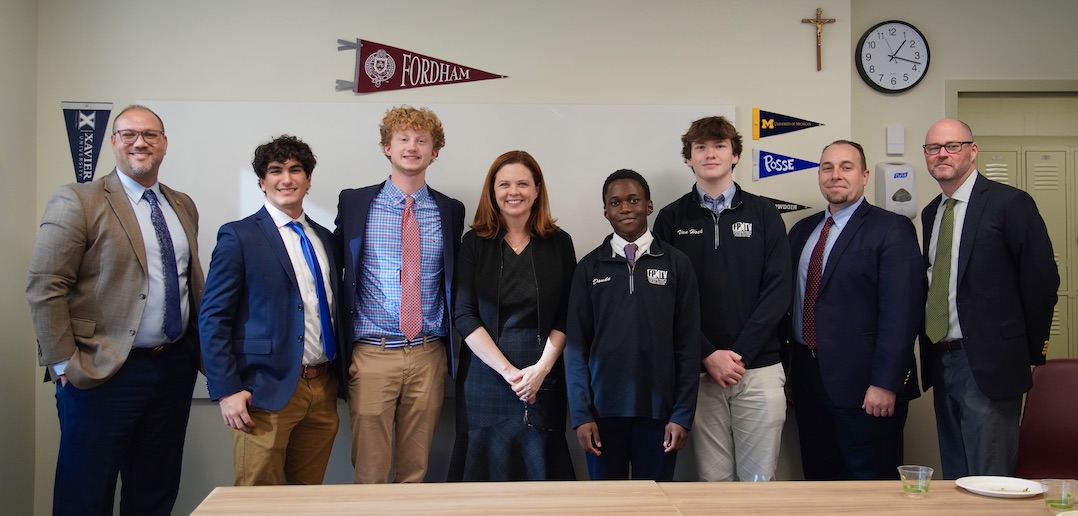
On Oct. 31, administrators from both schools met at the Rose Hill campus with Tania Tetlow, president of Fordham, and the executor of Scully’s estate to accept the gift to the University and to speak to the importance of Scully’s legacy. “With this gift, we celebrate Vin’s talents and fundamental decency, and teach them to the next generation,” Tetlow said.
“He loved these schools, and this is a way for him to express his gratitude,” said the executor, Edward White, during the meeting. He visited both schools to go over the gifts, which can be used however each institution sees fit.
Also on hand to celebrate the gift were Ed Kull, Fordham’s athletic director, and Chuck Singleton, general manager of WFUV, Fordham’s public media station, where Scully worked as a student broadcaster before gaining renown as the Voice of the Dodgers, the baseball franchise that moved from Brooklyn, New York, to Los Angeles in 1957.
Sometimes referred to as the Velvet Voice, Scully was beloved for his eloquence and iconic style as an announcer, and provided inspiration for generations of sports broadcasters. Scully served the Dodgers for 67 years, retiring in 2016. He was 94 at the time of his passing on August 2.
His many awards and honors include induction into the University’s Hall of Honor and into the broadcasters’ wing of the National Baseball Hall of Fame, as well as a Presidential Medal of Freedom bestowed by President Barack Obama in 2016.
On Nov. 1, Scully was honored with a video tribute at WFUV’s annual On the Record awards dinner. On March 20, he will be honored with a posthumous Founder’s Award at the 2023 Fordham Founder’s Dinner, to be held at The Glasshouse in Manhattan, with Scully’s family accepting the award on his behalf. Two days later, on March 22, the archbishop of New York, Cardinal Timothy Dolan, will celebrate a memorial Mass in Scully’s honor at St. Patrick’s Cathedral at 10 a.m.
In addition, the press box at Houlihan Park at Jack Coffey Field will be renamed in Scully’s honor, among other initiatives to honor his legacy, the University announced on Nov. 14.
Setting the Tone
The son of Irish immigrants, Vincent Edward Scully graduated from Fordham Prep in 1944 and went on to call baseball, basketball, and football games for WFUV—which was founded during his student years at Fordham College at Rose Hill.
“WFUV turns 75 this fall, and in the beginning, there was Vin Scully,” Singleton said. “Vin set the tone in 1947, and his influence echoes today in the quality work of WFUV’s talented young sports journalists.”
Scully kept up with Fordham over the years, taking interviews from FUV student journalists, hosting some workshops for them, and returning to campus as commencement speaker in 2000 and receiving an honorary doctorate from the University. His presence is also felt in Fordham athletics, since he played for the baseball team as a student.
In remarks after the meeting, Kull said Scully was “more than just a voice; he was an institution and a true master of his craft.”
“The impact he made on not only baseball, but the entire sports media industry, is humbling,” Kull said. “His story, with his Fordham and Bronx roots, continues to inspire our Rams and the entire Fordham family.”
A Bond with Fordham
Scully’s Fordham baseball career included a game against Yale, whose team included a future U.S. president, George H.W. Bush. When Bush was president, he met Scully for golf and later sent him a framed photo taken of them, White noted at the meeting.
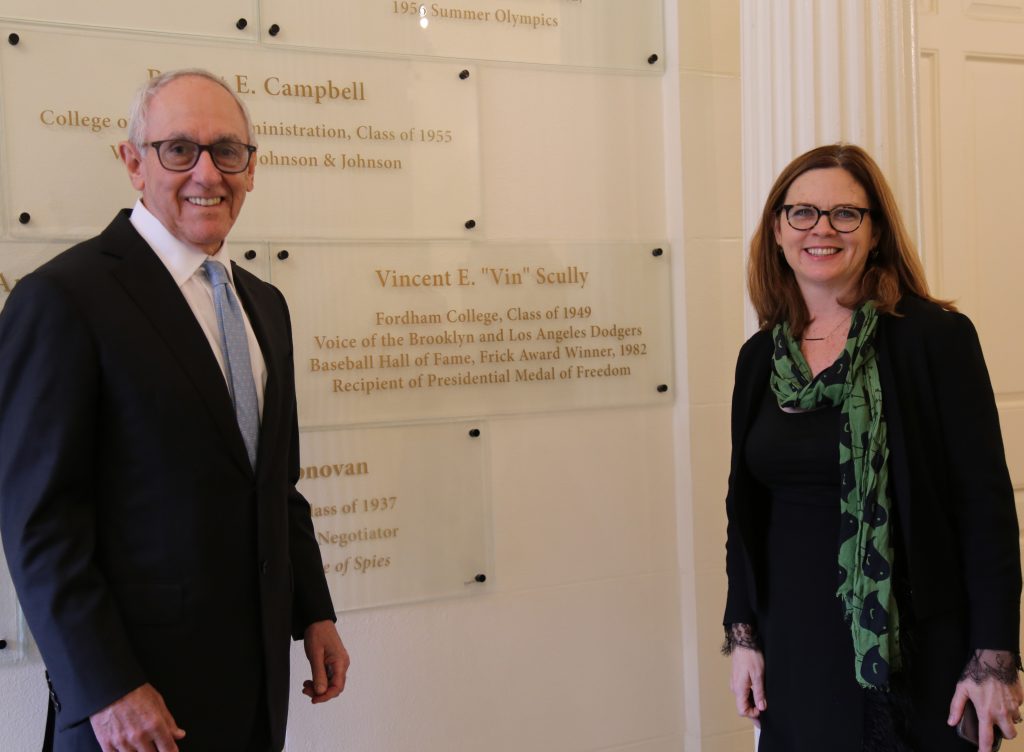
“He frequently spoke very fondly of his experience at WFUV, and always felt that he was a part of the Fordham family … and wanted to contribute equally to Fordham Prep and Fordham University, which is exactly what he did,” said White, Scully’s business manager and friend for over 40 years, after the meeting.
“As a lifelong Catholic, he had a deep appreciation for the faith foundation provided at this exceptional Jesuit institution,” said White, senior partner with Edward White & Co., LLP, in Woodland Hills, California. He noted that Scully sponsored him during his own conversion to Catholicism. “He loved the foundation that he received, spiritually and academically. Every time he spoke of Fordham, it was glowing.”
He sometimes glimpsed Scully’s kindness and generosity—as well as his fame—while traveling with him, along with Scully’s late wife, Sandra, and his own wife, Mary White, who also attended the Oct. 31 meeting.
“Wherever we went, he was so well received, and so appreciated and so loved, and people would oftentimes stand in line to see if they couldn’t get his autograph or if they could have a photograph of him,” White said. “He was very thoughtful and compassionate to everyone. Whether he was speaking to a parking attendant or a most senior person [in politics]or in the commercial world, he treated everyone equally.”
During his trip to New York, White attended another event with a small Fordham connection—a Nov. 1 ceremony in which another client of his, the late singer and actress Lena Horne, a 1997 Fordham honorary degree recipient, became the first Black woman to have a Broadway theater named after her.
It was a joy to see where Scully attended school, White said. “He was truly a wonderful, giving, loving human being. We all loved him. We miss him indeed.”
]]>Tradition holds that Fordham’s military heritage dates from 1848, when the state of New York issued Fordham 12 muskets for defense against the threat of nativist rioters, noted Lt. Col. Paul Tanghe, Ph.D., professor of military science at Fordham, at the Nov. 6 event at the Rose Hill campus. Today, the University is home to a military service community comprising “one of the most diverse [ROTC] cadet battalions in the Northeast” and more than 400 students who are veterans, he said, noting the University’s reputation for being welcoming to them.
“The military-connected community is one of the things that makes Fordham special,” he said. “This is a community that’s built around individual paths of service coming together in one place.”
Efforts to honor, support, and grow that community will be part of the yearlong anniversary celebration.
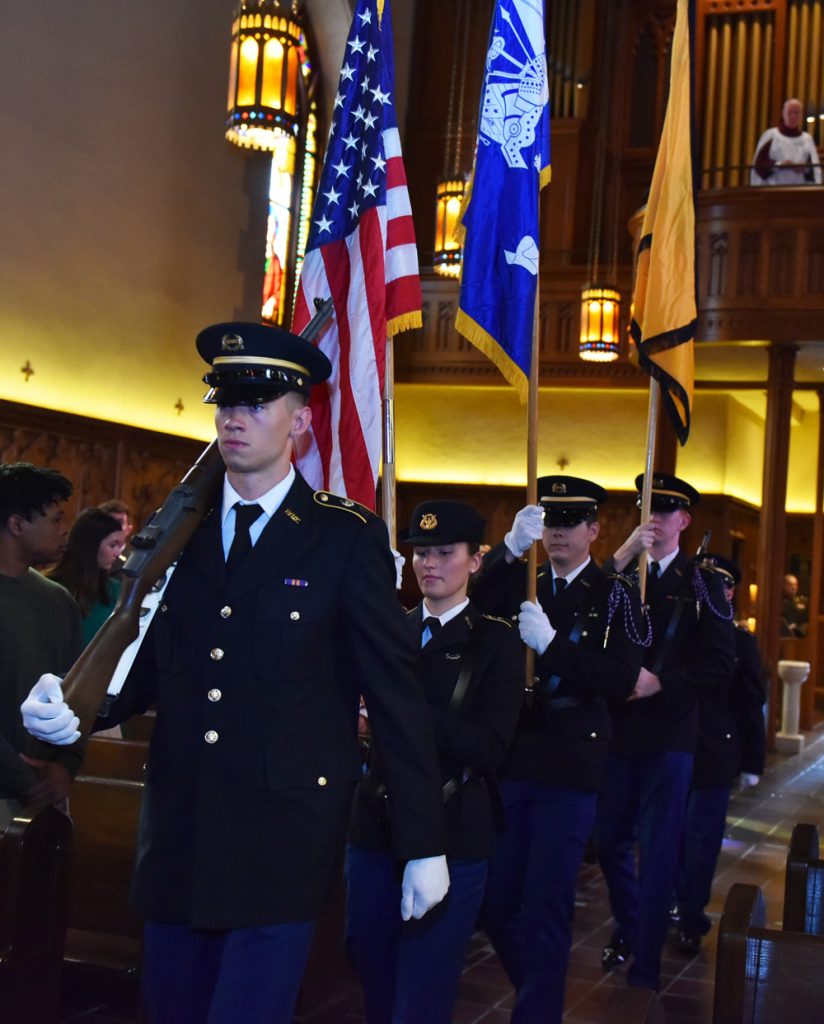
The Office of Military and Veterans’ Services and the Department of Military Science will host two events per month from January through November, with each month’s events organized around a chapter of military history at Fordham. January’s events include a service project—in partnership with Campus Ministry—related to welcoming immigrants, harking back to the origins of Fordham’s military training in 1848. Events in later months will commemorate the Civil War, Vietnam War, World War I, and other epochs, culminating in a gala to be held in November 2023.
There is also a “military muster” outreach effort to Fordham’s military community—ROTC graduates, student and alumni veterans, faculty and staff who served, and friends and family of Fordham veterans—to reengage them with the University. In addition, the veterans’ services office will lead an effort to raise $4.2 million to support ROTC cadets and student veterans as part of Cura Personalis | For Every Fordham Student, the University’s $350 million fundraising campaign.
The veterans’ services campaign received some impromptu support at the Nov. 6 event, which celebrated two distinguished alumni veterans as well as the ROTC program and student-veteran community at Fordham.
Two Who Served with Valor
Attendees included alumni, student veterans, and cadets in Fordham’s ROTC program, a flagship program in the Northeast comprising cadets who attend 17 New York-area schools, from New York University to the Parsons School of Design, Tanghe said.
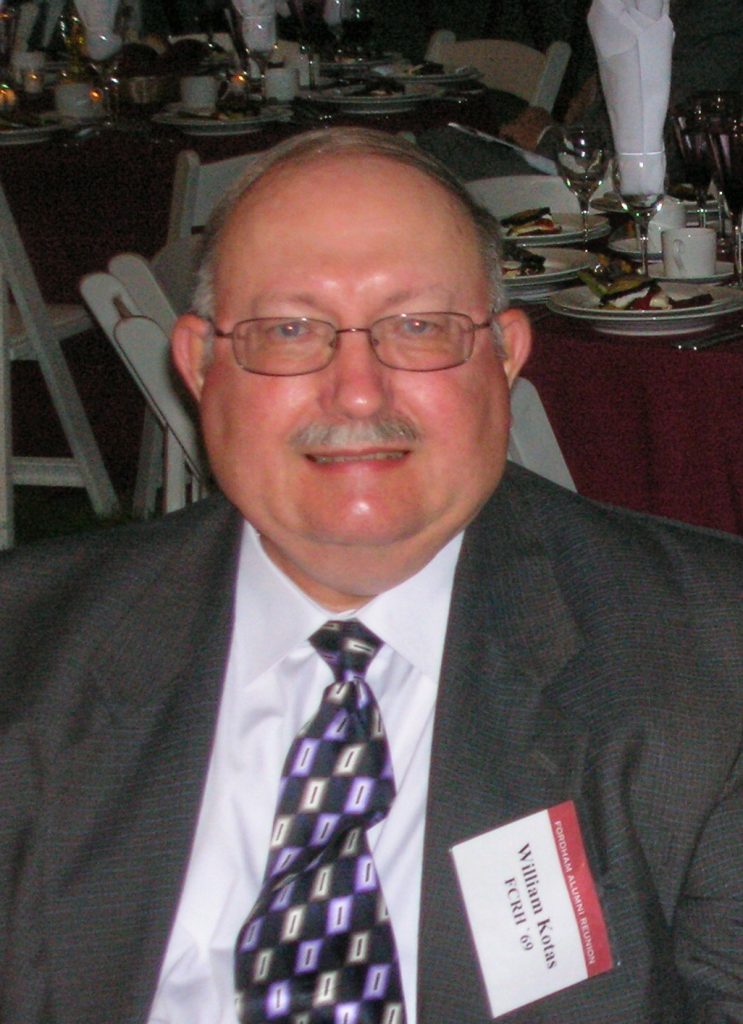
Two alumni veterans were inducted into the Fordham University Military Hall of Fame: William E. Kotas, FCRH ’69, a graduate of Fordham’s ROTC program, onetime U.S. Army captain, and Vietnam War veteran, who was honored posthumously; and retired U.S. Marine Corps Capt. Gerry Byrne, FCRH ’66, a Vietnam War veteran, media executive, community leader, and entrepreneur.
Kotas, who died last year, served as a platoon leader with the 23rd Infantry Division. He was inducted in honor of “the way that he approached all of his duties and obligations to others in his life,” from his cadet years to his post-Army life, Tanghe said.
“His military service was shorter than he wanted it to be because of the manner in which he approached it”—that is, with devotion to the soldiers under his command, Tanghe said.
In a display of that devotion, he personally led a patrol during which he suffered grievous injuries that would require a year of hospitalization and medical retirement from the Army. At the time of his injury, he continued to lead his men and directed them to safety. Kotas received multiple military honors, including the National Defense Service Medal, the Parachute Badge, and the Bronze Star Medal with the “V” device to denote heroism.
Moving back to Nashville, Tennessee, “he continued to find a life of purpose and meaning,” Tanghe said. Kotas was a founding member of the St. Ignatius of Antioch Catholic Church in Nashville and taught in its adult education program on Sundays, among other community activities, and worked for the U.S. Postal Service until his retirement.
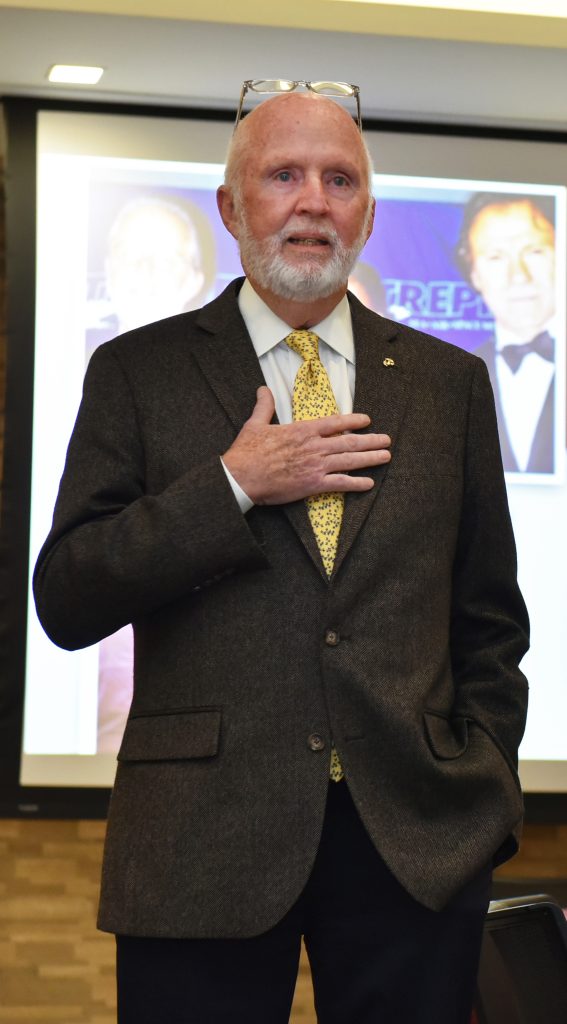
Byrne, a 1962 graduate of Fordham Preparatory School, was commissioned via the Marine Corps’ Platoon Leaders Class, which he attended while earning his degree from Fordham College at Rose Hill. He served on active duty from 1966 to 1969, including a tour in Vietnam spanning the latter two years.
“What I learned at Fordham Prep and Fordham College from the Jesuits was ethics and integrity,” he told the gathering. “In the Marine Corps, I learned discipline and leadership. When you combine it, it’s amazing what you get out of it.”
Byrne has had a distinguished career in media, serving as launch publisher of Crain’s New York Business, creator and chairman of NBC’s Quill Awards, and publisher of Variety, leading its transformation into a diversified global media brand. Today he is vice chairman of Penske Media.
He has hosted a Marine Corps birthday celebration in New York City for the past 25 years, and in 2009, he received the Made in New York Award from then-mayor Michael Bloomberg.
Byrne serves on the boards of nonprofits too numerous to name, including the Intrepid Sea, Air & Space Museum. He learned the value of staying busy, he said, from the famed television producer Norman Lear, who, during a conversation about packed schedules, told him that “life is not a rehearsal.”
“When I go back and think about friends and fellow marines who don’t have the ability to stand here like I am, it’s very moving,” said Byrne, who attended the event with some friends from the Corps and his wife, Liz Daly Byrne.
He said he was “extraordinarily honored” to be inducted into the Hall of Fame “and to be a Fordham graduate, and to see … everyone who’s here today.”
A Fundraising Campaign Begins
The fundraising campaign announced at the event has three components:
- An Emergency Relief Fund to promote wellness for military-connected students and provide loans to help students through financial distress ($100,000 goal)
- An endowment to enrich ROTC cadets’ and student veterans’ education by sending them to events and conferences, bringing guest speakers to campus, and providing gear needed for new training opportunities ($1.75 million goal)
- A drive to create a facility at Rose Hill for student veterans and cadets that promotes inclusion, community, collaboration, and information sharing, in part through new digital resources ($2.3 million goal)
Tanghe noted that the Emergency Relief Fund will provide microloans to help students who, for instance, might be unable to meet monthly living expenses on time, because their veterans’ benefit payments are held up by bureaucratic snafus. “If you’re missing a month of rent in New York City, that can be a significant financial burden,” Tanghe said at the Nov. 6 event.
Matthew Butler, PCS ’17, Fordham’s director of military and veterans’ services, said the fundraising effort has gotten off to a strong start, with one donor contributing $25,000 in mid-October.
During a follow-up meeting, the donor wrote another check, for $70,000, Butler said.
That’s when Byrne spoke up—“Liz and I will throw in the other five” needed to bring the tally up to an even $100,000, he said.
Asked later about his spontaneous decision to donate, he gave a simple reason.
“It’s supporting Fordham and veterans,” he said. “There’s no better reason than that.”
Register here to be connected with others in Fordham’s military-affiliated community.
To inquire about supporting the Office of Military and Veterans’ Services fundraising campaign, please contact Michael Boyd, senior associate vice president for development and university relations, at 212-636-6525 or [email protected]. Learn more about Cura Personalis | For Every Fordham Student, a campaign to reinvest in every aspect of the Fordham student experience.
]]>Going to Fordham “sent my life on a trajectory that I could never have imagined,” said Rowen, who went on to a successful career as a business executive, philanthropist, and alumni leader for his two alma maters, Fordham Preparatory School and Fordham University.
There were struggles and uncertainties—for all eight of his high school and undergraduate years, he was commuting two hours each way from his home on Long Island. And, for a time, his family finances made it seem doubtful that he could attend college at all.
But it was also a pivotal time in many ways: During his junior year at the Prep, an intervention from one of the Jesuit instructors put him on the path to the University and taught him an important lesson about overcoming difficulty. And then there was his experience at Fordham College at Rose Hill: the friendships formed, the classes that conveyed a moral sense, and faculty members’ help with the basics of landing a job.
“The faculty was very engaged, very caring,” he said. Going to Fordham “was one of those points that, when you look back in your career or your life, are transformative,” he said. “I feel I have a debt to the University and the Jesuits for how they helped me.”
He has made many major gifts to both Fordham Prep and Fordham University—including, now, a major contribution toward completing the Joseph M. McShane, S.J. Campus Center, a keystone of the University’s $350 million fundraising campaign, Cura Personalis | For Every Fordham Student. The Career Center in the new building will be named for Rowen in recognition of his gift—signifying the importance, for him, of how Fordham prepared him for his post-college pursuits.
After graduating in 1986 with a degree in English and a minor in economics, he joined Merrill Lynch and then Kidder Peabody, where he worked in the incipient field of quantitative finance. After working in executive roles at Deutsche Bank and SAC Capital Advisors, he joined the investment management firm Renaissance Technologies LLC in 2008, where today he is chief operating officer.
He has served on Fordham’s Board of Trustees and on various Fordham College at Rose Hill alumni committees, among other roles, and is a double alumnus of the University, having earned his M.B.A. from the Gabelli School of Business in 1998.
At the Gabelli School, he learned business principles that are applicable “to almost everything,” he said. And that includes philanthropy: Harnessing the benefits of competition, he founded and funded the Great Ignatian Challenge, in which 27 Jesuit high schools (so far) in the Northeast and mid-Atlantic regions strive to collect the most food for the hungry during the holidays, with the winning schools receiving funding to help provide financial aid to their students.
“It’s been very rewarding to do this,” Rowen said, “because you can see an Ignatian teaching supercharged with some basic business principles, and you make an impact in the lives of thousands.”
Why was it important to you to support the McShane Campus Center project?
The campus center is important to the University on so many levels, physically and emotionally and psychologically. Both for folks who live on campus and those who commute, it’s extremely important to have that place to hang your hat. I just feel that it’s good for the University’s culture. And there’s also such a “wow” factor—when you see that new building, with its big open spaces and how inviting it is, it sends a very strong message to faculty, current students, potential students, and parents that the University is vibrant and it’s growing. And ultimately, the direction of the University is extremely important to me.
Why is it appealing to be the namesake for the Career Center?
Not coming from a white-collar background, many of the items of preparing to look for a job were foreign to me. The only work experience I had when I was in the college was working in a hardware store. I had no idea how to write a resume. I found that the faculty was extremely helpful in sharing their views and advice and helping me with the types of questions asked in interviews. Today, the competitive pressures for jobs continue to go up, and many students may not come from households that are that familiar with it either. The Career Center becomes extremely important for how to present yourself and what the expectation is when doing interviews. Interviews are evolving, and Fordham has to be ahead of the curve while sticking to its traditions.
The Ignatian teachings of being in the service of others are a differentiator for our students. The moral compass is a critical element of Jesuit education, and also the ability to employ critical thinking and discernment. I think you’ll find most employers are looking for that ability to de-engineer a problem and make recommendations for solutions. That’s what the Jesuits do—they’ll be there to help, but they don’t want to give you the solutions. They want to help you foster the skill to come up with a solution.
Do you have a career lesson for today’s students?
Don’t rush to judgment; things aren’t always what they seem. I find that when employees didn’t meet expectations, often, when you do a little digging, you’ll find out that there’s something more serious going on, and that’s when the Ignatian-based attitude of “how can I help?” becomes important. We need to understand the circumstances of the individual first before making any recommendations or changes. During the COVID pandemic, we’ve had exceptional employees who struggled, and when you peel back a little, you find out a child is sick, a parent has passed away, a health issue in the family has gotten worse, a loved one has been laid off. It’s not a function of, “Oh, they’re not working well at home”; they have a real paradigm shift in their life. So I think we’ve done a pretty good job of just checking in on employees to make sure that if there are issues, they know they have a safety net. We’re there to help.
Is there a person or experience that was pivotal in your education?
At Fordham Prep, Father Stan O’Konsky would help us with our college essays in junior year, and one day in homeroom he walked around and said, “Hey, Jim, why aren’t you working on a college essay?” I said, “Well, I chatted with my mother during the summer; we don’t have money to send me.” So I wasn’t going to do any applications. He looked at me and walked off, and at the end of homeroom he came back and said, “You know what? We’re not going to let you off easy. I’ll tell you what, I want you to write an essay. You apply to Fordham, and if you get in, we’ll make sure you find a way to go. We’ll find the money.” So at that point I started working on my essay and he helped me. We compared my commute from Long Beach, Long Island, on the Long Island Railroad and the subways, to the adventures in Virgil’s Aeneid. He was very helpful in saying, let’s do a creative essay around something that’s really unique about your time at the Prep, which was my commute.
Basically, he said don’t give up. Apply, and if you get in, we’ll figure it out, right? It was a typical Jesuit approach—let’s think about it, let’s discern, let’s come up with alternatives. If there are problems, there are solutions. That has always resonated with me, to this very day, and has been a cornerstone of what I would consider any success I’ve had.
How were the folks at the Prep prepared to help you attend Fordham?
They offered financial help if it was necessary—I think they would have found ways for me to earn money—but I found a way, through student loans and scheduling my classes Monday, Wednesday, and Friday and working Tuesday, Thursday, and Saturday at my uncle’s hardware store while commuting to Fordham.
Looking at the world today, what are you optimistic about?
I’m optimistic about evolution and how things have changed. You can see it in the strides that we are making with artificial intelligence and understanding the genome. There are many diseases and afflictions that I assume are likely to be cured in the next decade. Plus we’re becoming more globally connected. You can see it in how so many countries and individuals have rallied to help Ukraine. So I do think interconnection, globalization, and automation are going to create so many opportunities and a better quality of life for people.
What have you enjoyed most about staying involved with Fordham as an alumnus?
It’s the ability to be a steward of the things that I hold important about Fordham. I love the debate and discussion—what will the world look like in 20 years, and how will Fordham students be able to manage that? It is just really interesting to be part of a group of caring individuals who want the University to continue on its mission and try to figure out how the mission will be most impactful as the world evolves. You meet individuals from all walks of life who have one thing in common: They’ve had the Jesuit experience, they want to continue to be in the service of others, and they have decided to do it through stewardship of the University. It’s nice to have that kind of relationship.
You graduate from college thinking, okay, this is a chapter that’s closing. It closed for a little bit, but when it opened up, it opened up in a way that I could never have fathomed. It is just so much bigger and broader than I could have ever anticipated.
To inquire about supporting the McShane Campus Center project or another area of the University, please contact Michael Boyd, senior associate vice president for development and university relations, at 212-636-6525 or [email protected]. Learn more about Cura Personalis | For Every Fordham Student, a campaign to reinvest in every aspect of the Fordham student experience.
]]>Joe Moglia, FCRH ’71, blazed a trail of ascent at Merrill Lynch and then at the helm of TD Ameritrade over 24 years until, in 2008, he decided to return to the most rewarding work he knew—coaching football.
A New York City native, Moglia served as a baseball and football team captain while attending Fordham Preparatory School and then coached football at the Prep while working his way through Fordham College at Rose Hill. After graduation, he coached and taught at a Catholic boys’ school near the University of Delaware, where he earned a master’s in education, and later helped Dartmouth College win two Ivy League championships as defensive coordinator.
In 1984, after 16 years of coaching, family responsibilities and his interest in business led him to join the MBA training program at Merrill Lynch—as the one football coach among 25 MBA holders. “Everybody said, ‘This football guy is never going to make it here,’” he recalled. But he excelled, becoming the firm’s top worldwide producer and rising to high-level posts before joining TD Ameritrade as CEO from 2001 to 2008.
When he stepped down in 2008, shareholders had enjoyed a 500% return. In 2009 he became chairman of the board. Recently, TD Ameritrade announced that they would be acquired by Charles Schwab. The combined company will be worth $100 billion and have client assets of $5 trillion; When Moglia first arrived, these numbers were $700 million and $24 billion.
Prior to 2019, he was the head football coach at Coastal Carolina University, and in his first five seasons he led his team to the national playoffs all five years and to four conference championships, posting an overall record of 56-22 and a winning percentage of .718. In his last 11 years of college coaching, he has been a part of eight championship teams. He has also received multiple Coach of the Year honors, including the Eddie Robinson National Coach of the Year award, and was the recipient of the Vince Lombardi Award, and inducted into the Lombardi Hall of Fame.
His career is the subject of the 2012 book 4th & Goal: One Man’s Quest to Recapture His Dream, by Monte Burke. And Moglia has authored books on both coaching and investing—The Perimeter Attack Offense: The Key to Winning Football in 1982 and Coach Yourself to Success: Winning the Investment Game in 2005. This year he plans to start writing a third book, on leadership.
In advance of the Founder’s Dinner, Moglia sat down with FORDHAM magazine to talk about lessons learned in boardrooms and on the gridiron, as well as his struggles with a speech disorder that always draws surprised reactions whenever he tells people about it.
What was it like going from coaching football to the world of business when you joined Merrill Lynch?
While I didn’t have an MBA at all, I did have the background and skill set and characteristics that would make for an effective transition. I really believed that my 16 years of experience as a coach made me a better businessman. As a coach, it’s absolutely critical to be able to handle yourself under stress. You’ve got to be able to understand people, think strategically, and make decisions quickly. While it’s helpful for a coach to be reasonably charismatic, he or she has got to be a great communicator, a good teacher. And as a coach you’re very often representing a community at large, whether it’s a university, a community, a state, or a town.
What’s some other common ground between coaching and business?
You have to be sophisticated and smart enough to have a well-developed strategy that has contingency plans. It’s much easier to adapt and adjust it if you’ve got a well-thought-out concept behind it, and if it’s simple enough to execute. I’d say based on game plans and business plans that I’ve seen from my competitors, if they have a fault, it’s that they’re not simple enough. It may sound smart, it may sound great in a speech and in the board room, but if the 50 people who work for you don’t know it that well, they won’t be able to execute it.
In either field, knowing the strengths and the weaknesses of any part of your organization is critical. So if you want to expand in China and you have no competitive advantage in China, you should think that through. But many businesses will say, “You’ve got to expand in China! How can we not?” But if you don’t understand your core competencies, if you don’t know how to lever those competitive advantages, that’s probably not a smart idea.
You also have to adjust based on your people’s strengths and weaknesses. In football, when the first-string quarterback goes down, for instance, the second-string quarterback is often expected to know the same system. But he doesn’t have the same skill set, so you don’t ask him to do the same thing as the other guy. The second- or third-string quarterbacks will practice certain plays that the team has in common, but they should also practice the plays they know they’re pretty good at. And in business, for instance, there are certain skills a chief financial officer is supposed to have, but one might really have an understanding of marketing, and another might be stronger at strategy. So I will shape the job differently for one CFO than I would for another.
How did you come to return to coaching?
I stepped down as CEO of TD Ameritrade because the timing was right. But then I got a call from a group of alumni at Yale telling me there was a chance the football job would be open at the end of the 2008 season, and would I be interested? No transition like this had ever happened in college football. But I thought about it; I’ve always looked at the game like chess, with 22 pieces moving at once with a lot at stake, under serious time constraints with everybody watching, and I’ve always found that intellectually stimulating. And as a coach, I got so much satisfaction from working with the players. Having an impact on them was very, very important. That was my mantra my entire business career. My people mattered and I knew I had an impact on them. That’s what drives me.
So going back and representing the university, the community, the alumni, the faculty, and the students, but also having an impact on a 20-year-old, helping him really truly grow up—I didn’t think anything else could give me greater satisfaction in life.
Among your awards and honors are some related to stuttering, including the Hero Award from the Stuttering Association for the Young. Can you talk about your own struggles?
I have a pretty serious stutter. In grammar school through college, if I knew the answer to a question in class, I wouldn’t raise my hand, because I was afraid I couldn’t get my words out. And then I decided that I wanted to take this assistant coaching job at Fordham Prep. Well, of course a coach has to communicate. So I would practice in front of a mirror again and again. I had to speak at the Fordham Prep football banquet for three minutes; I can’t tell you how nervous I was, but I prepared 10 hours for that three minutes and I got through it. There is seldom a time in my life where I don’t have a fear that I’m not going to be able to talk.
I’ve spoken in a lot of different places and I am so incredibly well prepared. I know I’ve got something to say and I’ve probably said it 150 times already. So I have a confidence level with that. But sometimes when I’m tired or stressed, I really struggle to get my words out. Sometimes I would bridge to another word quickly—I can’t get out “banana,” but I’d say “fruit.” I’d trick myself, just to get “fruit” out there. I’ve done a good job of controlling it over the years, but stuttering is still a very, very real thing for me.
How would your life be different if you hadn’t gone to Fordham?
A big part of whatever success I’ve achieved across two career paths is because of Fordham. I’ve always said that. I’ll say it again.
Then, in sophomore year, one of his professors—Mark Naison, Ph.D.—learned of his worries and called a Fordham administrator in search of funding help. And that’s how Purnell became one of the scores of students who benefit every year from the UPS Endowed Fund, Fordham’s largest donor-supported scholarship fund and one of the oldest scholarship funds at the University.
Money was a real concern for Purnell and his family; his father was a New York City transit worker and his mother worked as a secretary at St. Patrick’s Cathedral. The UPS funding award not only eased their financial worries but also gave Purnell new confidence to apply for external funding for his undergraduate and, later, his graduate studies.
“It just really motivated me,” said Purnell, a 2000 graduate of Fordham College at Rose Hill.
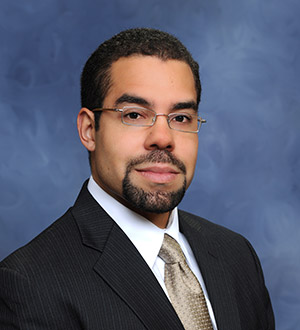
“I can remember just feeling very supported by the school, very encouraged to continue to pursue academics, and to do the best that I could in the majors that I had begun to gravitate towards.
“It was an indication that the studies that I was doing in the humanities were valued,” Purnell said. He later earned a doctorate in history at New York University, taught at Fordham, and worked as co-research director on Fordham’s Bronx African American History Project. Today he is the Geoffrey Canada Associate Professor of Africana Studies and History at Bowdoin College.
Purnell is one of hundreds of students for whom the UPS Endowed Fund has made a pivotal difference since it was established five decades ago. Without it, many would not have been able to attend Fordham at all.
Origins of an Endowment
The endowment emerged out of relationships among UPS officials and Leo P. McLaughlin, S.J., president of Fordham from 1965 to 1969, said Arthur McEwen, FCRH ’55, a retired vice president of human resources at UPS.
Father McLaughlin had gone to grammar school and high school with Walter Hooke, a civil rights and labor activist who was vice president of personnel at UPS, said McEwen, who reported to Hooke at the time. The company president, James McLaughlin, had gone to a Jesuit high school in Chicago, and his son was a Jesuit scholastic teaching at Fordham Prep, McEwen said.
Father McLaughlin invited the two UPS officials to dinner, where the talk turned to the undergraduate college that would soon open at Fordham’s new Lincoln Center campus, and how the University could foster more racial diversity among its students.
When the college opened in 1968, the first entering class included 55 minority students who benefited from a new scholarship funded by UPS’s philanthropic arm, the 1907 Foundation (later renamed the UPS Foundation), McEwen said.
Supplemented with further gifts from the foundation, the UPS Endowed Fund has grown to $18 million and currently supports 154 students at both the Rose Hill and Lincoln Center campuses.
In decades past, the fund has had other uses: It helped teachers in the South Bronx attend Fordham’s Graduate School of Education, for instance. It also supported an internship program for Graduate School of Social Service students at the South Bronx’s Highbridge Community Life Center.
Creating Opportunity for Students
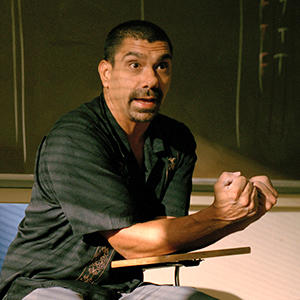
Today, the fund provides the UPS Scholarship to a diversity of students who would not otherwise have been able to attend Fordham. And it often provides financial flexibility that transforms students’ experiences at the University; past scholarship recipient José Haro, FCRH ’00, was able to study in Mexico for a year, and also did well academically “because I actually had time to study” rather than work for money, he said. He estimated that the scholarship from UPS covered about 20 percent of his costs.
When he got to graduate school, he felt well prepared. “I can’t put a value on the education I got from Fordham,” said Haro, an assistant professor of philosophy at the Borough of Manhattan Community College. He earned master’s degrees at New York University and at the University of South Florida, where he also earned his doctorate.
For Adrienne Boykin, GABELLI ’09, the scholarship funding from UPS came at a critical moment in sophomore year. A first-generation college student, she had transferred to Fordham from a community college, drawn by the top-flight accounting program and the Jesuit education. But finances were always a big concern, and she was having doubts that she could afford to stay.
“I thought all the pieces were falling apart,” she said. “But when I was able to get this scholarship, I just felt such a sense of relief and joy.”
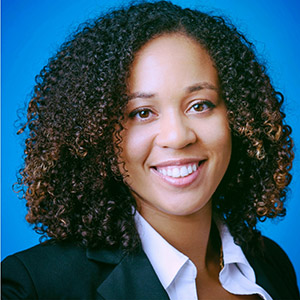
Upon graduating, she went to work for accounting giant PwC, or PricewaterhouseCoopers, having taken advantage of its recruitment relationship with Fordham. “It was a very good job coming out of college,” she said. “Being at another school, I’m not sure that I would have been able to have that specific access” to employment opportunities at the firm, said Boykin, who is now the director of finance and administration at America Needs You, a nonprofit that provides mentoring and career development support to first-generation college students.
Many current recipients describe the scholarship as an important piece in the financial aid puzzle that brought a Fordham education within view. Mia Kroeger, a sophomore from Roswell, Georgia, was considering many colleges until she visited the Rose Hill campus. She was awestruck, “and when I met the people, I realized this was the perfect place for me,” she said.
The UPS Scholarship brought Fordham within the realm of possibility. “It was a big relief,” she said. Being able to choose Fordham “was really, really exciting.”
]]>“The game of baseball has a handful of signature sounds,” President Obama said at the White House ceremony. “You hear the crack of the bat, you got the crowd singing in the seventh-inning stretch, and you’ve got the voice of Vin Scully.”
He praised Scully’s engaging style, saying “generations of Dodgers fans brought their radios into the stands because you didn’t want to miss one of Vin’s stories.”
“Vin taught us the game and introduced us to its players. He narrated the improbable years, the impossible heroics, turned contests into conversations,” Obama said.
Scully is a Fordham Prep graduate who got his start in broadcasting by announcing football, basketball, and baseball games at WFUV, Fordham’s public radio station and media service, during his time at the University. He recently retired after 67 seasons as the voice of the L.A. Dodgers (originally the Brooklyn Dodgers). He was inducted into the broadcasters’ wing of the National Baseball Hall of Fame in 1982, and has received many other accolades including an honorary degree from Fordham.
The Medal of Freedom, the nation’s highest civilian honor, is presented to those who have made extraordinary contributions to the security or national interests of the United States, to world peace, or to cultural or other significant public or private endeavors.
President Obama bestowed the Medal of Freedom on a total of 21 people including Tom Hanks, Robert Redford, Bill and Melinda Gates, Kareem Abdul-Jabbar, NASA scientist Margaret H. Hamilton, and Eduardo Padrón, president of Miami Dade College and a prominent voice for greater access to higher education.
Obama said that Scully, upon learning he’d receive the medal, replied “‘Are you sure? I’m just an old baseball announcer.’ And we had to inform him that to Americans of all ages, you are [an]old friend.”
]]>Dr. Skorton will be awarded an honorary doctorate during the commencement ceremonies, as will eight other people who have distinguished themselves in business, law, the arts, or public service. See here for full details on Fordham’s commencement ceremonies.
Honorary doctorates of humane letters will be awarded to Dr. Skorton and to Judith Altmann, vice president of the Holocaust Child Survivors of Connecticut; Gregory Boyle, SJ, head of the gang-intervention group Homeboy Industries; Maurice “Mo” Cunniffe, FCRH ’54, a successful businessman and key supporter of Fordham; Patricia David, GABELLI ’81, global head of diversity for JPMorgan Chase; and Sr. Carol Keehan, DC, president and CEO of the Catholic Health Association of the United States.
An honorary doctorate of laws will be awarded to Loretta A. Preska, LAW ’73, chief judge of the U.S. District Court for the Southern District of New York.
Honorary doctorates of fine arts will be awarded to Robert Battle, artistic director for the Alvin Ailey American Dance Theater, and to Henry Cobb, founding partner at the architecture firm Pei, Cobb, Freed & Partners and co-designer of Fordham Law School’s new building.
Cobb and Preska will receive their honorary doctorates at the law school’s diploma ceremony, to be held Monday, May 23, at the Beacon Theatre in Manhattan. All other honorary doctorates will be awarded at the main University commencement on May 21.
Preska will speak at Fordham Law School’s diploma ceremony. David will speak at the Gabelli School of Business’ diploma ceremony for master’s degree candidates, to be held May 23 at the Beacon Theatre. Father Boyle will speak at the diploma ceremony for the Graduate School of Social Service, to be held May 23 at Lincoln Center’s David Geffen Hall.
David Skorton became the first physician to lead the Smithsonian Institution when he began his tenure in July 2015. He oversees 19 museums and galleries, the National Zoo, and various research centers devoted to astrophysics, tropical research, the natural environment, and other areas.
During his tenure, Dr. Skorton has made arts programming a priority at the Smithsonian, and he continues to advocate for a greater national commitment to arts and humanities education. In an address at the National Press Club in December, he called for reversing what he called our nation’s “disinterest and disinvestment in the arts and humanities” while also preserving the nation’s commitment to science.
As he put it, “This commitment must be based on an understanding that the arts and humanities complement science and that together they us make better thinkers, better decision makers, and better citizens.”
Dr. Skorton earned both his bachelor’s degree in psychology and his medical degree from Northwestern University before completing his residency and fellowship in cardiology at the University of California, Los Angeles, in 1979. He then joined the faculty of the University of Iowa, where he held professorships in internal medicine, biomedical engineering, and other fields before serving as the university’s president from 2003 to 2006.
In 2006 he was named president of Cornell University, where under his leadership the university joined with Technion-Israel Institute of Technology to win a competition to develop a new campus, Cornell Tech, on New York City’s Roosevelt Island. He also won praise as a highly effective fundraising at both Cornell and the University of Iowa.
Dr. Skorton has also served as a professor in Cornell’s Department of Biomedical Engineering and in the departments of medicine and pediatrics at Weill Cornell Medical College. He is a pioneer in applying computer analysis and processing to improve cardiac imaging, and has published two major texts and numerous other writings on cardiac imaging and image processing.
He is also an amateur flute and saxophone player who once co-hosted a weekly Latin jazz program on the University of Iowa’s public radio station.
Other Honorary Degree Recipients:
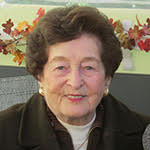 Judith Altmann is a Holocaust survivor who shares her story widely in Connecticut and Westchester County schools as a way of encouraging young people to make a better world. Born in 1924 in Jasina, Czechoslovakia, she was confined in Nazi camps at Auschwitz, Essen, Gelsenkirchen, and Bergen Belsen in 1944 and 1945. She is a vice president of the Holocaust Child Survivors of Connecticut and recipient of the Anti-Defamation League’s Daniel R. Ginsberg Humanitarian Award for 2013.
Judith Altmann is a Holocaust survivor who shares her story widely in Connecticut and Westchester County schools as a way of encouraging young people to make a better world. Born in 1924 in Jasina, Czechoslovakia, she was confined in Nazi camps at Auschwitz, Essen, Gelsenkirchen, and Bergen Belsen in 1944 and 1945. She is a vice president of the Holocaust Child Survivors of Connecticut and recipient of the Anti-Defamation League’s Daniel R. Ginsberg Humanitarian Award for 2013.
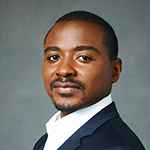
Robert Battle is artistic director for the Alvin Ailey American Dance Theater, which offers a BFA in dance in conjunction with Fordham. Renowned for his challenging, athletic, and lyrical choreography, Battle was named one of the Masters of African American Choreography by the John F. Kennedy Center for the Performing Arts in 2005, among his other honors. He established the Ailey company’s New Directions Choreography Lab to nurture emerging talents, and continues to expand the company’s community outreach and education programs.
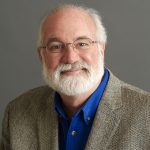
Gregory Boyle, SJ, is executive director of Homeboy Industries, one of the nation’s largest gang-intervention organizations. Hundreds of former gang members have changed their lives by taking advantage of the organization’s work program and its services including education, legal help, and substance abuse counseling. Father Boyle is an internationally recognized expert on gang intervention approaches and author of The New York Times bestseller Tattoos on the Heart: The Power of Boundless Compassion (Free Press, 2011).
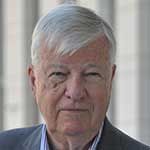
Henry N. Cobb is a founding partner at the award-winning architecture firm Pei, Cobb, Freed & Partners. Along with his colleague Yvonne Szeto, he designed the new 22-story Fordham Law School and McKeon Residence Hall building at Fordham’s Lincoln Center campus. His many other distinctive projects include the iconic John Hancock Tower over Boston’s historic Copley Square, which earned the prestigious Twenty-Five-Year Award from the American Institute of Architects.
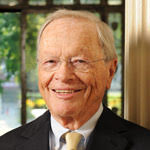
Maurice “Mo” Cunniffe, FCRH ’54, chairman and CEO of Vista Capital, is a successful engineer, businessman, entrepreneur, and Fordham trustee emeritus who is one of the University community’s most vital and longstanding supporters. He played a pivotal role in the expansion of Fordham Prep as one of its trustees from 1983 to 1995, and his extraordinary financial support for Fordham was recognized in 2013 with the renaming of the Administration Building at the Rose Hill campus in his honor. He served on the Fordham University Board of Trustees from 1995 to 2003.
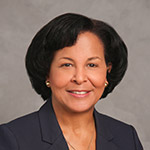
Patricia David, GABELLI ’81, managing director and global head of diversity for JP Morgan Chase, has been widely recognized for integrating diversity efforts throughout the company over the past 15 years. With her help, the company was named to Black Enterprise’s 2015 list of the most diverse companies, and she herself has received honors including the YMCA’s Black Achievers in Industry award. She serves on the advisory board for the Gabelli School of Business and was named the school’s Alumna of the Year for 2015.
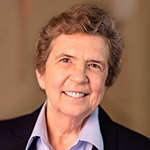
Sr. Carol Keehan, DC, is a passionate advocate for expanding health care access. Sister Carol was recognized by President Obama for helping to secure passage of the Affordable Care Act, and Pope Benedict XVI bestowed on her the Cross for the Church and Pontiff to honor her humanitarian efforts. Since 2005 she has been president and chief executive officer of the Catholic Health Association of the United States, a membership organization comprising more than 600 Catholic hospitals and 1,400 other health ministries.
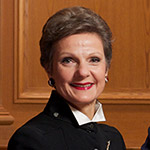
Loretta A. Preska, LAW ’73, is chief judge of the U.S. District Court for the Southern District of New York. In more than two decades as a judge she has ruled on many high-profile cases, such as those involving computer hacking, sentencing of a Somali pirate involved in hijacking a U.S.-flagged cargo ship, and the parody of an Annie Leibovitz photograph. She is a steadfast and generous supporter of Fordham who received Fordham Law School’s Louis J. Lefkowitz Public Service Award and the Fordham Law Alumni Association’s Medal of Achievement. A member of the Fordham University Board of Trustees from 2007 to 2013, she is now a trustee fellow.
]]>
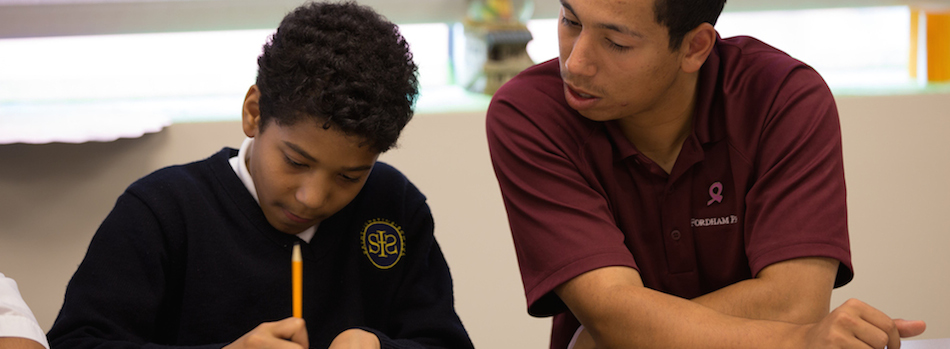
There are morning rhythms on the Rose Hill campus: the toll of Keating Hall’s bell, the chants of an ROTC unit on its early run, the Metro North horn, and the muffled shuffling of teenage Rams on their way to Fordham Prep.
While Fordham Prep remains officially separate from the University, its students are very much a part of the Rose Hill vista.
“We are legally separate entities, but we’re indistinguishable with respect to our missions,” said James S. Rowen, FCRH ’86, GABELLI ’98, chairman of the board at the Prep.
Rowen is a Ram through and through. He graduated the Prep in 1982, before earning his undergraduate and graduate degrees here. Traveling more than four hours a day from Long Beach, Long Island to the Prep, he secured the class record for the longest commute.
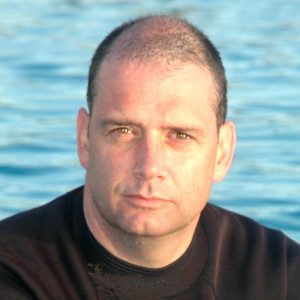
Now, Rowen has committed $1.2 million to create an endowment for Jesuit high school students who want to attend Fordham but may not have the financial means. He said that Fordham “can only be successful staying true to its Ignatian roots, which focus on making a premier education available to the most deserving students regardless of their financial capabilities or situation.”
With priority given to students from Fordham Prep and Regis High Schools, the growing endowment will help ensure that social and economic diversity continues at Rose Hill.
Rowen said that his own family did not have the money to send him to Fordham. His mother encouraged him to go to the local community college, but one of the Prep’s Jesuit instructors told him to apply to Fordham. He was accepted and some money was found to help with tuition.
“I scheduled my classes for Monday, Wednesday, Friday, and worked on Tuesday, Thursday, and Saturday to assist with the costs,” he said.
He added that those Jesuits who taught him at both institutions prepared him for almost every aspect of life, from personal to the professional.
“The Jesuits have this manner of teaching that translates into ‘I’m not going to solve this problem for you, but I’ll help you solve it.’ That approach makes you so much more confident, self-reliant and resilient,” he said. “You’ll fall down and make mistakes, but they give you the confidence to try again and to not fear failure—but learn from it.”
“The high school years are where core values and social beliefs are set,” said Rowen. Part of the purpose of his gift is to help young men continue in their Ignatian development and learn the skills necessary to thrive, not just survive.
“College is a refinement of that foundation, a continuation of that learning experience, and it would be a shame if a student had to stop after four intensive years at Fordham Prep or Regis because he couldn’t afford to continue,” he said.
Rowen said he hopes the endowment builds an even stronger alliance between the Prep and the University, but more importantly four years could become eight years of a Jesuit student’s academic and spiritual growth.
]]>
